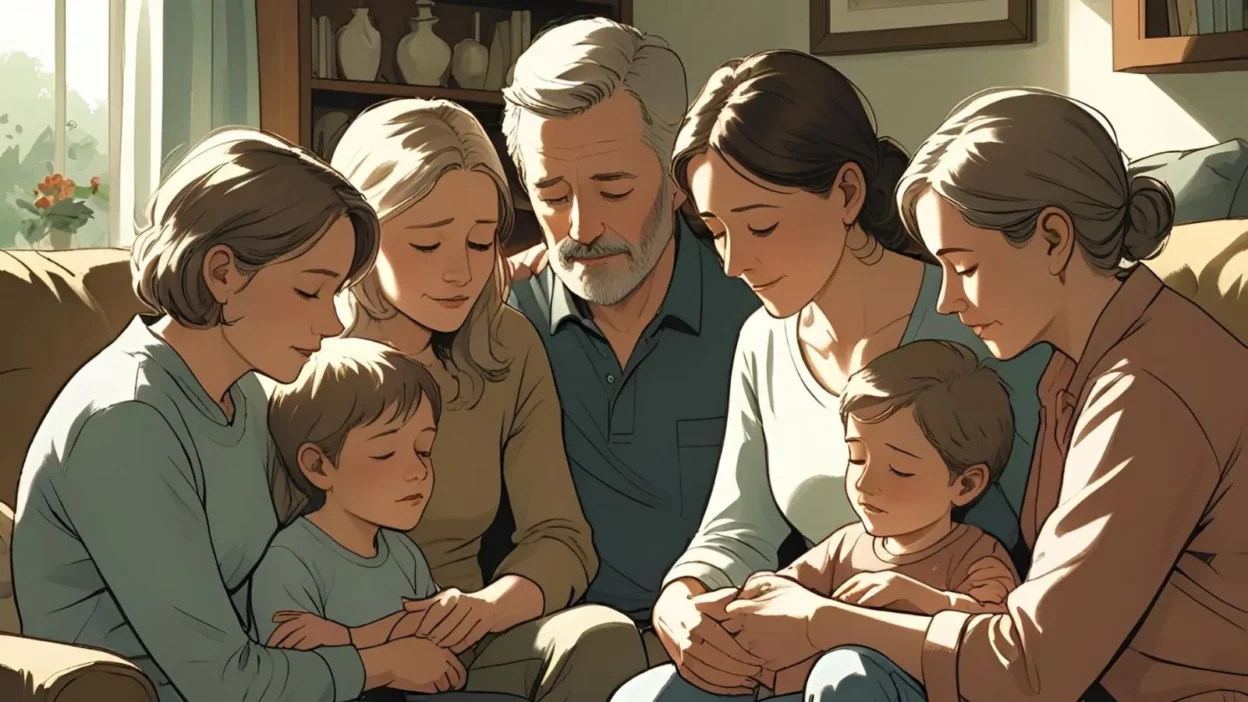Losing someone close is one of the hardest things we go through. When a family member dies, words often feel too small. We want to comfort others or express our own feelings, but finding the right thing to say can be confusing, emotional, and sometimes even scary. You might worry about saying the wrong thing or making someone feel worse.
That’s why it helps to know what to say when a family member dies. Whether you’re speaking to a grieving friend, attending a funeral, or simply trying to express your sympathy, your words matter — and they can bring comfort and healing in tough moments.
In this guide, we’ll walk you through real-life examples of what to say and what not to say in sensitive moments of grief. These suggestions are easy to follow, heartfelt, and grounded in compassion — so you can speak with confidence and kindness, even when it’s hard.
Sorry Generator
Acknowledge the Loss Clearly and Gently
When someone has lost a family member, it’s important to recognize their pain rather than avoid it. Skipping over the loss can feel cold or dismissive. Even if it feels awkward, saying something simple and genuine can go a long way.
✅ What to say:
- “I’m so sorry for your loss.”
- “I can’t imagine how hard this must be for you.”
- “I’m here for you.”
❌ What NOT to say:
- “Everything happens for a reason.”
- “They’re in a better place.”
- “At least they lived a long life.”
Scenario: If your friend’s father has passed, say, “I heard about your dad. I’m truly sorry. Please let me know if you need anything.” This respects their grief while offering support.
Listen More Than You Speak
Sometimes, the best thing to say is actually very little. Let the grieving person lead the conversation. You don’t need to fix their pain — just being there matters.
✅ What to say:
- “Would you like to talk about them?”
- “I’m here to listen if you want to share memories.”
- “Take your time. I’m not going anywhere.”
❌ What NOT to say:
- “You should talk to someone about this.”
- “You need to stay strong.”
- “You’ll feel better soon.”
Scenario: If someone begins crying during a conversation, simply say, “It’s okay to cry. I’m here with you.” That gives them space and safety.
Share a Memory or Kind Word About the Person
People often find comfort when others remember their loved one. If you knew the person, share a positive story or thoughtful memory.
✅ What to say:
- “I’ll never forget how your sister made everyone laugh at family dinners.”
- “Your mom always made me feel welcome.”
- “I feel lucky to have known your uncle.”
❌ What NOT to say:
- “I didn’t know them well, but I’m sure they were great.”
- “Let’s not dwell on the past.”
- “At least they’re not suffering anymore.”
Scenario: If you attended a family BBQ years ago, you could say, “I still remember how your dad grilled the best burgers. He made everyone feel at home.”
Offer Help in Specific Ways
Grief is exhausting, and many people won’t ask for help even when they need it. Offering specific support shows you truly care.
✅ What to say:
- “Can I bring you dinner this week?”
- “Do you want me to help with errands or phone calls?”
- “I’ll check in with you next weekend — is that okay?”
❌ What NOT to say:
- “Let me know if you need anything.”
- “You should get out of the house more.”
- “Time heals all wounds.”
Scenario: Instead of saying “I’m here if you need me,” try, “I’m dropping off some groceries this Thursday — what do you like for breakfast?”
Respect Different Grieving Styles
Everyone grieves in their own way. Some cry a lot. Others don’t. Some want company, others want space. Don’t judge or compare.
✅ What to say:
- “However you feel right now is okay.”
- “There’s no ‘right’ way to grieve.”
- “I support you, whatever you need.”
❌ What NOT to say:
- “You should be over this by now.”
- “You’re handling this better than I did.”
- “Don’t think about it too much.”
Scenario: If someone doesn’t cry or talk much, say, “I know everyone copes differently. Just know I’m here whenever you need me.”
Final Thoughts
There’s no perfect script for what to say when a family member dies — but being kind, honest, and thoughtful always helps. Avoid clichés. Speak from the heart.
And most importantly, listen and show up for the people you care about. Even the simplest words like “I’m here for you” can bring comfort during one of life’s hardest moments.




